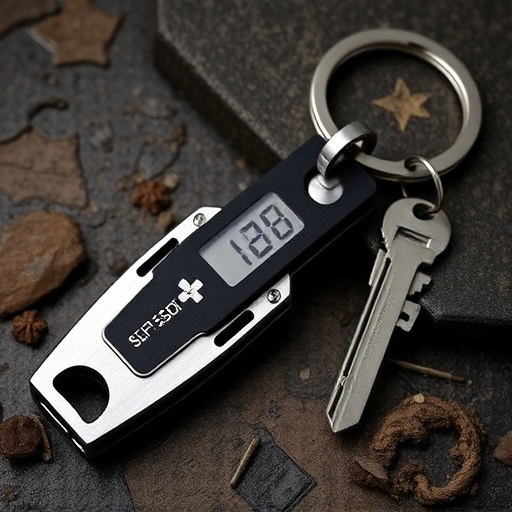In the US, laws surrounding concealed keychain protection devices for women vary state-to-state, requiring users to understand local regulations for legal compliance and personal safety. These compact self-defense tools are generally legal for individuals aged 18 and above, but their use, including open or concealed carry permissions, device types, and permit/registration requirements, differ widely. Women should research their state's specific rules to ensure the safe and responsible use of these devices in potentially dangerous situations.
“In today’s unpredictable world, personal safety is a top priority. For many women seeking empowerment and peace of mind, concealed keychain protection devices offer a discreet yet effective self-defense option. However, navigating state laws regarding these compact tools can be challenging. This article guides you through the legal landscape, clarifying who can carry these devices and what regulations apply. We explore the rights and responsibilities associated with owning a self-defense keychain, ensuring you’re informed and prepared.”
- Understanding State Laws on Concealed Keychain Devices
- Who Can Carry and Where is It Legal?
- Legal Requirements for Self-Defense Keychains
- Rights and Responsibilities of Users
Understanding State Laws on Concealed Keychain Devices
In many states across the US, the legal landscape surrounding concealed keychain protection devices is evolving to better accommodate personal safety needs, especially for women who often carry purses or bags. These tiny yet powerful tools are designed to provide a swift means of self-defense in close-quarters situations. However, it’s crucial to understand that laws vary significantly from state to state when it comes to the legality of carrying such devices.
Women considering the purchase of a concealed keychain device should familiarize themselves with their state’s specific regulations. Some states explicitly permit the open or concealed carry of such tools for self-defense purposes, while others may have restrictions on the type of device allowed or require permits or registrations. Staying informed about these legal requirements is essential to ensure compliance and peace of mind.
Who Can Carry and Where is It Legal?
In many states across the US, concealed keychain protection devices are legal for individuals aged 18 and above. These compact self-defense tools are particularly popular among women seeking personal safety, offering a discreet yet effective way to deter potential attackers. The legality of carrying such devices varies from state to state, with some allowing open or concealed carry without a permit, while others mandate specific licensing or registration.
While most states do not have restrictions based on gender, women often find these keychains appealing due to their size and ease of use. They can be easily carried in a purse or pocket, providing peace of mind in potentially dangerous situations. It’s crucial for users to familiarize themselves with the local laws regarding concealed weapons or self-defense devices to ensure compliance and promote safety.
Legal Requirements for Self-Defense Keychains
In many jurisdictions, the legality of self-defense keychain protection devices, especially for women, is governed by specific laws and regulations. These devices, designed to provide a quick and discreet means of personal safety, must adhere to certain criteria to be considered legal. One key requirement is that they cannot be easily accessible or visible to avoid accidental discharge or drawing unwanted attention. The term ‘concealed’ is crucial here, indicating that the keychain should not be openly carried but secured in such a way that it remains hidden until activated.
Additionally, there might be restrictions on the type of force these devices can employ and the circumstances under which they can be used. Some states have specific laws regarding the use of pepper spray or stun guns as self-defense tools, including requirements for proper training and licensing. Women considering such keychain protection devices should thoroughly research their state’s laws to ensure compliance and understand the potential consequences of carrying or using a self-defense tool in public spaces.
Rights and Responsibilities of Users
When it comes to self-defense keychain devices, understanding one’s rights and responsibilities is paramount, especially for women who often find themselves in vulnerable situations. In many states, the possession of concealed keychain protection devices is legal, provided they meet specific requirements regarding size, functionality, and purpose. Users have the right to protect themselves and their property, but it’s crucial to know that active use of such devices against an attacker may be subject to legal repercussions, depending on local laws.
Responsibilities include ensuring these devices are used responsibly and only as a last resort when facing imminent harm. Women carrying self-defense keychains should also be aware of their state’s regulations regarding open or concealed carry permits, if applicable. Familiarity with these rights and obligations is essential to navigating potential legal issues while prioritizing personal safety in public spaces.
In understanding the legal requirements for self-defense keychain devices, it’s clear that these unique tools can provide added peace of mind, especially for women seeking personal safety. Navigating state laws and knowing one’s rights is crucial to ensuring these devices are used responsibly and legally. While the legality varies across states, many allow concealed keychain protection devices for self-defense purposes. Users must familiarize themselves with local regulations, including age restrictions and any specific requirements, to exercise their right to carry and protect themselves effectively.
